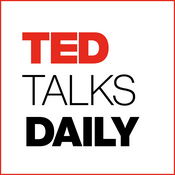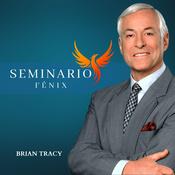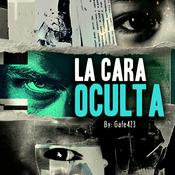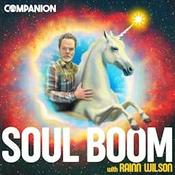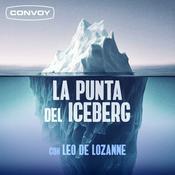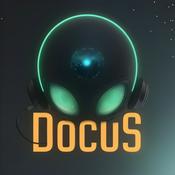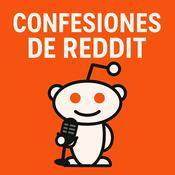538 episodios
- Alex Gómez-Marín is a controversial figure in contemporary neuroscience, known for challenging the materialist framework that dominates scientific accounts of consciousness. He argues that Near Death Experiences (NDEs) raise profound questions about the nature of reality and the limits of reductionist explanation. In this interview, Gómez-Marín reflects on the scientific evidence we have for NDEs and what they might mean for answering ultimate questions about the purpose of human existence.
Àlex Gómez-Marín is a Theoretical physicist and neuroscientist, Associate Professor at the Instituto de Neurociencias of Alicante in Spain, and director of the Pari Center in Italy.
Please do email us at [email protected] with any of your thoughts or questions on the episode!
To witness such talks live, buy tickets for our upcoming festival: https://howthelightgetsin.org/festivals/
And visit our website for many more articles, videos, and podcasts like this one: https://iai.tv/
You can find everything we referenced here: https://linktr.ee/philosophyforourtimes
See Privacy Policy at https://art19.com/privacy and California Privacy Notice at https://art19.com/privacy#do-not-sell-my-info. The relationship between mind and matter | Slavoj Žižek, Alenka Zupančič and Carlo Rovelli
10/2/2026 | 50 minThe self and the world
We tend to think of ourselves as observers of the world and experience as something different from the material stuff that makes up reality. Yet at the same time as human beings, we are at once part of the universe and part of that reality. And this profoundly puzzling relationship, that we are both part of something and yet separate from it, has been at the centre of Western thought. Materialists claim there is only physical material. But if so, thought, experience, and consciousness become illusory. Idealists argue there is only consciousness, but then it is reality that becomes an illusion. While dualists hold that both the self and the world exist, but that the connection between the two is mysterious.
Is the self part of the world or necessarily outside of it? Was Kant right that the distinction between subject and object is necessary for experience to be possible? Or are these deep metaphysical questions beyond us, and our theories and language incapable of uncovering the ultimate state of things?
Slavoj Žižek is one of the most famous philosophers in the world and is the author of more than 50 books, including most recently at the time of the debate Zero Point. Alenka Zupančič is a leading Lacanian philosopher and social theorist. She is a professor at The European Graduate School and at the University of Nova Gorica. Joining from America, Carlo Rovelli is a leading theoretical physicist, the author of several best-selling books, and a founding figure in the field of quantum gravity. His recent book, Reality Is Not What It Seems, has ethical implications for the nature of the self and personal identity. Jack Symes hosts.
Email us at [email protected] with your thoughts on the episode!
To witness such topics discussed live buy tickets for our upcoming festival: https://howthelightgetsin.org/festivals/
And visit our website for many more articles, videos, and podcasts like this one: https://iai.tv/
You can find everything we referenced here: https://linktr.ee/philosophyforourtimes
See Privacy Policy at https://art19.com/privacy and California Privacy Notice at https://art19.com/privacy#do-not-sell-my-info.- An individual "is responsible for everything he does," claimed Sartre. And from criminal justice to creative expression, free will and responsibility are central to our culture and our personal lives. Yet neuroscientists and materialist thinkers commonly maintain that freedom is an illusion. And it remains unknown how the core principles of freedom and responsibility can be reconciled with this outlook. Many attempts have been made to argue that the two seemingly contradictory frameworks can be made compatible. But critics say these "compatibilist" arguments are unconvincing and are driven merely by the attempt to make scientific materialism acceptable. Furthermore, whilst surveys suggest most materialist philosophers believe we can reconcile the two, the majority of us reject the idea that an action can be both determined and free.
Paul Bloom is a Canadian-American psychologist, bestselling author, and celebrated speaker. He is Professor Emeritus at Yale and a professor at the University of Toronto. Bloom’s work explores human nature, morality, and pleasure.
Joining us from California is Robert Sapolsky. Sapolsky is a distinguished neuroscientist, primatologist, and author, best known for his research on stress and its impact on behaviour and health. He is also a professor at Stanford University.
Lucy Allais is a philosopher at Johns Hopkins University and the University of the Witwatersrand, renowned for her work on Immanuel Kant. Her writing spans ethics, metaphysics, and political philosophy.
Please do email us at [email protected] with any of your thoughts or questions on the episode!
To witness such debates live buy tickets for our upcoming festival: https://howthelightgetsin.org/festivals/
And visit our website for many more articles, videos, and podcasts like this one: https://iai.tv/
You can find everything we referenced here: https://linktr.ee/philosophyforourtimes
See Privacy Policy at https://art19.com/privacy and California Privacy Notice at https://art19.com/privacy#do-not-sell-my-info. - Are we living in the moment? Are we really free? How can we transcend the constant anxieties of our mind?
Throughout history, certain people in the West and the East have claimed that the human mind could reach states of so-called higher consciousness. In the twentieth century, several thinkers like Heidegger and Nietzsche returned to this possibility, trying to find the higher regions of the mind. Join Oxford philosopher Jessica Frazier as she explores tales of higher states of mind, and debates whether these experiences are scientific, spiritual, or pure esoteric imagination.
Please do email us at [email protected] with any of your thoughts or questions on the episode!
To witness such debates live buy tickets for our upcoming festival: https://howthelightgetsin.org/festivals/
And visit our website for many more articles, videos, and podcasts like this one: https://iai.tv/
You can find everything we referenced here: https://linktr.ee/philosophyforourtimes
See Privacy Policy at https://art19.com/privacy and California Privacy Notice at https://art19.com/privacy#do-not-sell-my-info. Should we be transgressive? The limits and potential of transgressiveness | Catherine Liu, Rowan Williams, Josh Cohen
06/1/2026 | 48 minThe good, the bad, and the transgressive
Is the transgression of norms and rules what brings history forward and allows for creativity and change? OR is the fetishization of transgression an ever-present danger that breaks down all structures of meaning and becomes totalizing in of itself?
The limits and potentials of transgressiveness have been long debated, especially in rule-breaking Modernity. Listen to this lively conversation between three unlikely and profound thinkers - provocative cultural theorist Catherine Liu, former Archbishop of Canterbury Rowan Williams, and psychoanalyst Josh Cohen - to hear what role transgression should, and should not, play in our societies.
Hosted by philosopher Barry C. Smith
Please do email us at [email protected] with any of your thoughts or questions on the episode!
To witness such debates live buy tickets for our upcoming festival: https://howthelightgetsin.org/festivals/
And visit our website for many more articles, videos, and podcasts like this one: https://iai.tv/the-failures-of-liberalism
You can find everything we referenced here: https://linktr.ee/philosophyforourtimes
See Privacy Policy at https://art19.com/privacy and California Privacy Notice at https://art19.com/privacy#do-not-sell-my-info.
Más podcasts de Cultura y sociedad
Podcasts a la moda de Cultura y sociedad
Acerca de Philosophy For Our Times
Philosophy for our Times is a free philosophy podcast bringing you the latest talks and debates from the world’s leading thinkers. We host weekly episodes on today’s biggest ideas in news, society, culture, politics, science and arts. Subscribe today to never miss an episode.
Sitio web del podcastEscucha Philosophy For Our Times, Enigmas sin resolver y muchos más podcasts de todo el mundo con la aplicación de radio.net
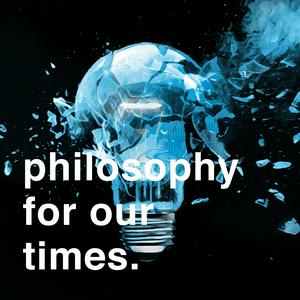
Descarga la app gratuita: radio.net
- Añadir radios y podcasts a favoritos
- Transmisión por Wi-Fi y Bluetooth
- Carplay & Android Auto compatible
- Muchas otras funciones de la app
Descarga la app gratuita: radio.net
- Añadir radios y podcasts a favoritos
- Transmisión por Wi-Fi y Bluetooth
- Carplay & Android Auto compatible
- Muchas otras funciones de la app


Philosophy For Our Times
Escanea el código,
Descarga la app,
Escucha.
Descarga la app,
Escucha.







